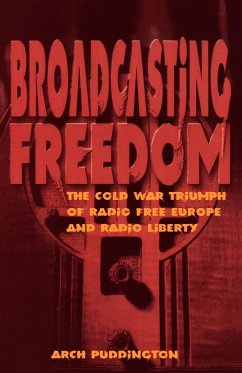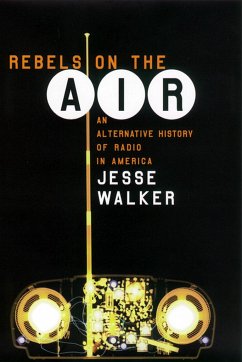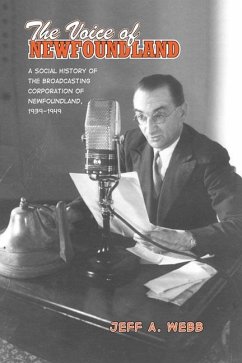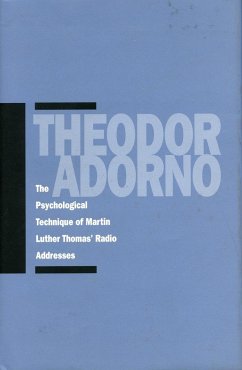
Air Wars: The Fight to Reclaim Public Broadcasting
Versandkostenfrei!
Versandfertig in über 4 Wochen
22,99 €
inkl. MwSt.

PAYBACK Punkte
11 °P sammeln!
A riveting narrative of the price of politics, money, and ambition, and an inspirational account of how ordinary people can prevail over powerful interests, Air Wars tells how a grassroots movement of concerned citizens at WQED in Pittsburgh was able to overcome enormous institutional influence in their quest for public accountability. These citizens believed strongly in public television's unique mission to serve the diverse social and cultural needs of local communities. When their own station neglected this mission in the search for national prestige and bigger revenues, they felt profoundl...
A riveting narrative of the price of politics, money, and ambition, and an inspirational account of how ordinary people can prevail over powerful interests, Air Wars tells how a grassroots movement of concerned citizens at WQED in Pittsburgh was able to overcome enormous institutional influence in their quest for public accountability. These citizens believed strongly in public television's unique mission to serve the diverse social and cultural needs of local communities. When their own station neglected this mission in the search for national prestige and bigger revenues, they felt profoundly betrayed. Jerold Starr exposes the political and commercial pressures that made strange bedfellows of the top officials of public broadcasting, the Democratic Party establishment, Pat Robertson and the Christian Coalition, home-shopping and "infomall" king Lowell "Bud" Paxson, and billionaire right-wing publisher/philanthropist Richard Mellon Scaife. What began as a bitterly contested local struggle that disturbed the serenity of Mister Rogers' Neighborhood later became front-page national news with revelations of presidential candidate John McCain's influence-peddling scandal on behalf of media mogul Paxson. This was followed by congressional resolutions attacking the FCC's authority to regulate noncommercial educational broadcast licenses. The "Pittsburgh case" promises to be in the news for some time to come. Far beyond Pittsburgh, Starr looks at how the reform movement has spread to major cities like Chicago, Phoenix, Jacksonville, and San Francisco, where citizen activists have successfully challenged public stations to be more community responsive. Finally, he outlines an innovative plan for restructuring the public broadcasting service as an independently funded public trust. Joining this vision with a practical strategy, Starr describes the formation of Citizens for Independent Public Broadcasting, a national membership organization with a grassroots approach to putting the public back into public broadcasting. Author note: Jerold M. Starr, an activist and award-winning sociologist, is founder and executive director of Citizens for Independent Public Broadcasting, an organization established to promote noncommercial broadcasting in the service of the public interest.












